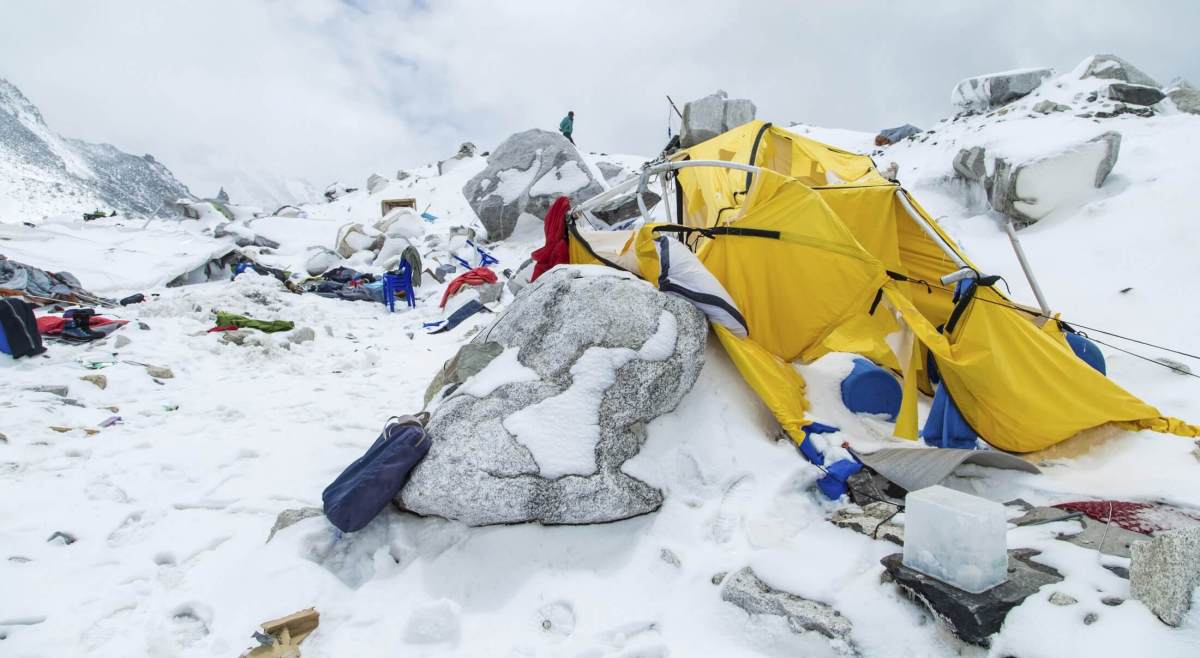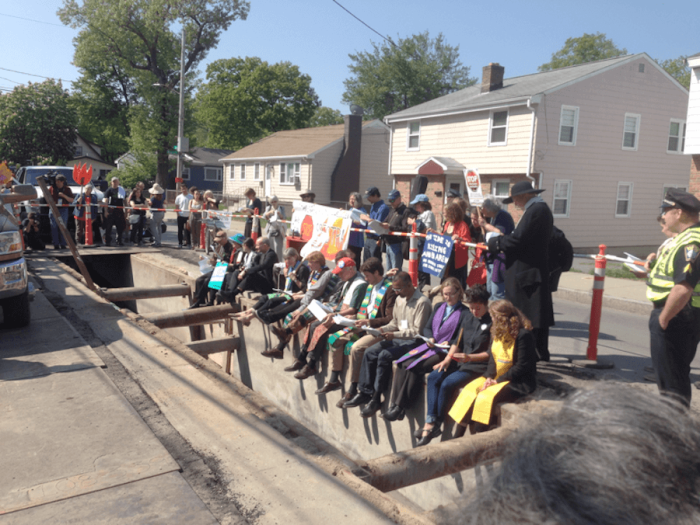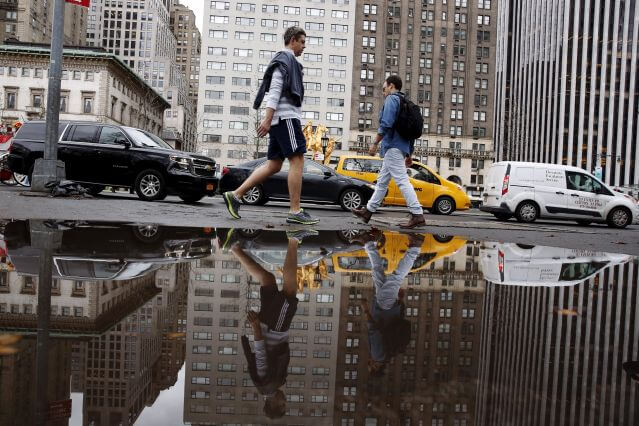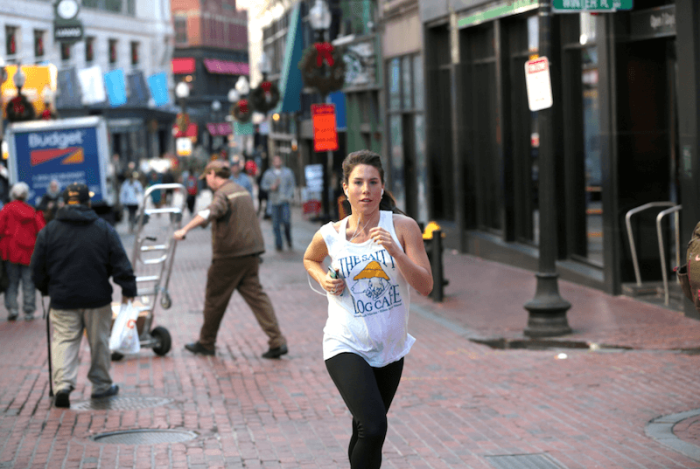Reuters –Climber Nick Cienski has not given up on his world record bid to scale six 8,000-meter peaks this calendar year, despite narrowly escaping a huge avalanche on Mount Everest set off by an earthquake that killed thousands of people in Nepal. The avalanche unleashed by the 7.9 magnitude quake on Saturday blew tents, people and gear hundreds of feet, only just missing his team, the Canadian told Reuters on Monday by satellite telephone from base camp. A day after helping to recover the bodies of 12 of at least 17 avalanche victims, Cienski agonized over whether to continue his quest in the poor Himalayan nation struck by a greater tragedy. More than 3,700 people have died. “We are still sorting through a lot of emotions; 24 hours ago we were wrapping people’s body parts in bags,” said Cienski, speaking over the noise of helicopters evacuating climbers two-by-two from further up the world’s tallest peak. “So on the one hand the reality of that … and on the second hand, we are climbers and this is sort of what we do.
“And so, does it make sense to continue?” said Cienski, an executive with a U.S. outdoor apparel firm.
Injured avalanche survivors were flown down the mountain on Sunday, but many of the more than 300 foreign climbers attempting to scale Everest were staying put for the time being.
Phil Crampton, expedition leader of New York-based climbing outfit Altitude Junkies, said on Sunday wasn’t yet clear whether his team would pull out of base camp or press on.
Crampton was on the 29,035-footmountain a year ago when an avalanche struck the Khumbu icefalls, killing 16 sherpa mountain guides, in what was until now the worst climbing tragedy on Everest.
“I think we are all just going to wait and see what happens,” he told Reuters by phone from the camp.
“I’m not familiar with any teams leaving base camp yet. I think a few teams went down the valley for a few days. They plan to return.”
Romanian climber Alex Gavan, who had microblogged his eyewitness account of the avalanche and its aftermath, said he had left Everest base camp to help the earthquake relief effort.
“The time is not for climbing now, but for helping Nepali people,” he posted on Twitter on Monday.
Last year’s avalanche killed only sherpas who, unlike their foreign employers, have to run the gauntlet through the treacherous Khumbu icefalls many times to ferry equipment and supplies to advanced camps. Fury among the sherpas caused the cancelation of last year’s climbing season and led to promises of better pay for the guides, who see a relatively low share of the rewards of the high-end climbing business. This year, the feeling at Everest base camp was that the earthquake and avalanche were indiscriminate in taking the lives of local and foreign climbers, and so the season may continue. Among those who died were three Americans and one Japanese. Cienski is backed by a team from Russell Brice’s Himalayan Experience which advertises a standard fee of $65,000 to climb Everest. Cienski said most expert sherpas had returned to their villages to see whether their families and homes were safe. Only if they return, and are willing to press on, would Cienski continue in his Mission 14 quest (mission14.org), through which he is seeking to raise awareness against child sex trafficking.
“For me personally it’s probably too early to say how I feel about that. I wouldn’t want to continue if it made anybody uncomfortable to continue – sherpas included in that,” he said. Cienski, who first came to the Himalayas as a 21-year-old in 1987, plans to climb Everest, Lhotse and Makalu this spring, followed by Cho Oyo, Shishapangma and Manaslu later in the year in his 6 Summits Challenge (6summitschallenge.org). “If this is going to happen, it needs to happen quickly,” said Cienski, who will climb with separate teams and be flown on from one summit to the next base camp.
“We are sitting on needles and pins a little here.”
Canadian to complete Everest climb despite deadly quake avalanche

REUTERS/6summitschallenge.com
























